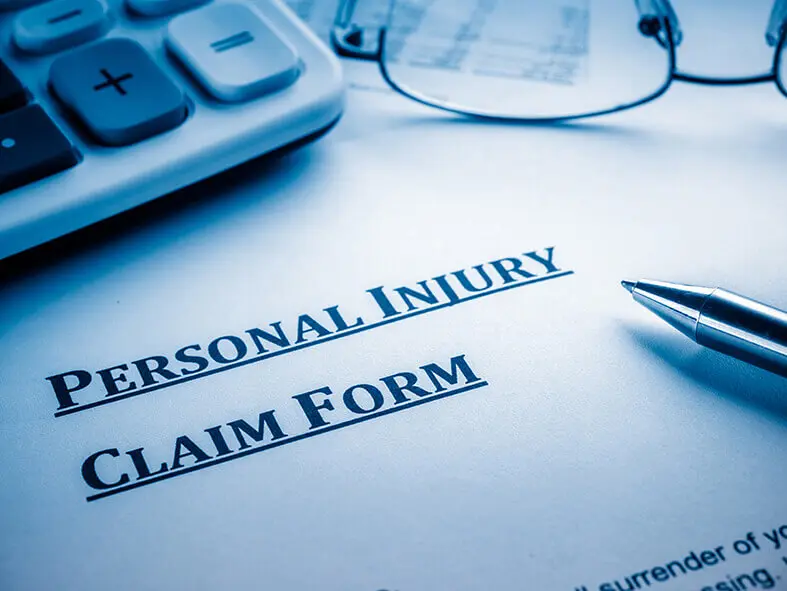
Before taking on a case, there are several factors that personal injury attorneys need to consider in order to determine whether or not to pursue the case. A thorough evaluation of the claim made by plaintiffs needs to be done to provide them with an accurate estimate of the value of the claim.
So, what do law firms need to know before taking a personal injury case? In this blog, we’re discussing the steps involved in evaluating a potential personal injury claim that helps attorneys be well-prepared and find suitable settlement options for clients.
What Are The Factors You Need To Consider For A Potential Personal Injury Claim?

The following are some key pointers one must have in mind when evaluating a potential personal injury claim:
- First, you must determine whether the injury was caused by another person or entity. If the injury was not caused by another person or entity, then there is no potential for a personal injury claim.
- Second, you must determine whether the person or entity liable for the injury is likely to have insurance coverage. If the person or entity liable for the injury does not have insurance coverage, then the potential for a personal injury claim may be limited.
- Third, you must determine whether the injury is significant. A minor injury is less likely to result in a successful personal injury claim than a more significant injury.
- Finally, you must determine whether there is a reasonable chance of success in pursuing the claim. If the chances of success are slim, then it may not be worth pursuing a personal injury claim.
Steps To Obtain Relevant Documents
If you are seeking to obtain all relevant medical records and documentation, there are a few steps you will need to take:
- You will need to gather all paperwork and identify what medical records you need.
- You will need to request the records from the relevant medical providers. This can be done through a records request form or by contacting the provider directly. In many cases, medical record retrieval can be difficult, and time-taking and it’s advised to outsource this task to retrieval experts.
- Once you have received the records, you will need to review them to ensure that they are complete and accurate. If you have any questions or concerns, you will need to contact the provider for clarification.
- Finally, you will need to keep the records safe and organized for future reference.
How To Evaluate A Potential Personal Injury Claim Before Taking A Case?

-
Meet With The Client
The lawyer must meet with the person who submits the complaint in order to assess the claim’s merit. It is important to speak with witnesses to the accident or incident to get a clear understanding of what happened. In this manner, you acquire knowledge of the key information pertinent to the case as provided by the potential client. Finding out as much as you can about the relevant legal facts and other legal support services is the first step in thoroughly examining personal injury claims.
-
Analysis Of The Material
The following stage in analyzing a personal injury claim is gathering medical records and having them analyzed by medical record retrieval experts. This assists in disclosing important details about the strength of the case and the client’s actual ailments. This will help to establish the extent of the injuries and the necessary treatment. Additionally, through this process, significant aspects that the client might not be able to recall or is reluctant to discuss, such as injuries, treatments, and prior medical issues, may be discovered.

-
Evaluating And Comparing Medical Records
It’s important to see if your potential client’s claims match up with the medical evidence you have. In order to achieve this goal, it is necessary to work with reliable medical record retrieval services and management businesses that help you with medical record summarization containing in-depth knowledge about case facts that the client has not disclosed.
The comparison will help you decide whether or not to accept the case. Contacting a reputable medical records management company can also help you determine whether or not to take on a case based on its potential profitability.
Medical Record Review And Summarization Of Records
To decide whether or not to represent a particular client, attorneys must first meet the person in person and then have a reputable outside company analyze and summarize the client’s medical records.
Medical summarization is the process of creating a medical records summary of a patient based on treatment history. This can be used to provide an overview of a patient’s health and can be used to help make treatment decisions. Having the medical data examined and summarized gives the attorney the crucial resources they need to advance the case. This offers a comprehensive awareness of all the key issues and aids them in increasing the quality of their cases.
Medical records review and medical summarization are important tools in the medical field. They help to ensure the accuracy and completeness of patient records and can be used to improve patient care. Medical records review involves examining patient records to identify errors, omissions, and discrepancies. This can help to improve the quality of patient care by ensuring that records are accurate and complete.

Conclusion
When representing clients in medical litigation, attorneys often face a massive influx of documents from which they must sift for the evidence they need. Medical record summaries can help in eliminating unnecessary guesswork and ease the process of evaluations. However, medical record summarization can be complex and firms are often faced with difficulties that can only be solved with expert assistance.
It’s best to reach out to experts such as those at ITCube BPM who can provide you with the experience, infrastructure, and expertise to help you overcome the mountain of incomplete, incorrect, and otherwise unusable patient data. Such teams provide comprehensive summaries of medical records that can be used to evaluate personal injury claims prior to taking a case in an effective way.
















